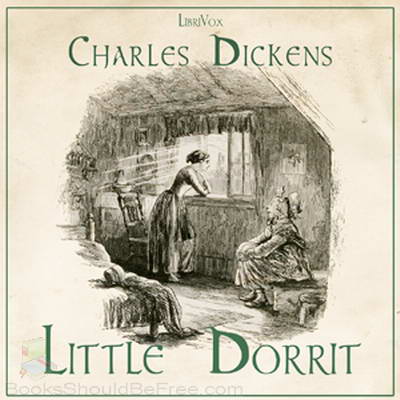Every summer I have made it my habit to read a Dickens novel.
“Yes,” you say “I have heard that before. The fact is that you have not read a Dickens novel for the past two-if not three summers!”
Well I admit this. But I still feel like it is a habit, and I am going to go ahead and read one all the same. And by the way, although I can’t remember reading a Dickens’ novel during the past two or three summers-I did read one-A Tale of Two Cities-with my literature class two years ago!
As a matter of fact just this evening I commenced Little Dorrit, which is by all accounts perhaps Dickens’s greatest novel!
“But,” you say, “that’s what they said about Bleak House and even David Copperfield!”
Well, that’s why I said “perhaps” and so far so good. I am enjoying it immensely. Take this for example,
Thirty years ago, Marseilles lay burning in the sun, one day.
“Yes,” you say “everyone knows that one. That is the very first line of the book! Did you get any further?”
I did get further. And perhaps I am a slow reader, but that is precisely the way Dickens or any great author should be read!
It turns out that the first four paragraphs of Little Dorrit are the ideal paragraphs to read during one’s summer break because they describe man’s universal experience of an almost unbearable hot summer day perfectly. For example,
Far away the dusty vines overhanging wayside cottages, and the monotonous wayside avenues of parched trees without shade, drooped beneath the stare of earth and sky. So did the horses with drowsy bells, in long files of carts, creeping slowly towards the interior; so did their recumbent drivers, when they were awake, which rarely happened, so did the exhausted laborers in the fields. Everything that lived or grew, was oppressed by the glare; except the lizard, passing swiftly over rough stone walls, and the cicala (Ed. as distinguished from the cicada), chirping his dry hot chirp, like a rattle. The very dust was scorched brown, and something quivered in the atmosphere as if the air itself were panting.
Dickens the master.
He adeptly expresses with vivid imagery and poignant language our universal experience of this kind of day.
This of course is the pride of Poetry, or Imaginative Literature.
As the scholarly Harvey Peter Sucksmith (who wrote the introduction and notes to the Oxford University Press edition that I am reading) so brilliantly said
One sign of a great work of fiction is its marvelous fusion of the general with the specific, and Little Dorrit demonstrates, in a most remarkable manner, the incarnation of universal truth in particular fact.
I wish I had said that.
I am sure I have said something very much like that before.
As a matter of fact I think I have said those very words on countless occasions– right down to the phrase “incarnation of a universal truth in a particular fact.” Such a great phrase could not have escaped my far-ranging mind, which being almost completely barren of any kind of clever metaphor, simile, synecdoche, metonymy, analogy, proportion or really just any intelligent figure or construction of speech, is, consequently, always alert for intelligent or witty phrases that I can borrow, pinch, steal, or otherwise and pass off as my own in as undetected manner as possible.
But as H.P.S. so brilliantly said, great fiction has the power to universalize the particular or particularize the universal, if you prefer, and it is precisely in that power that we take joy in it.






